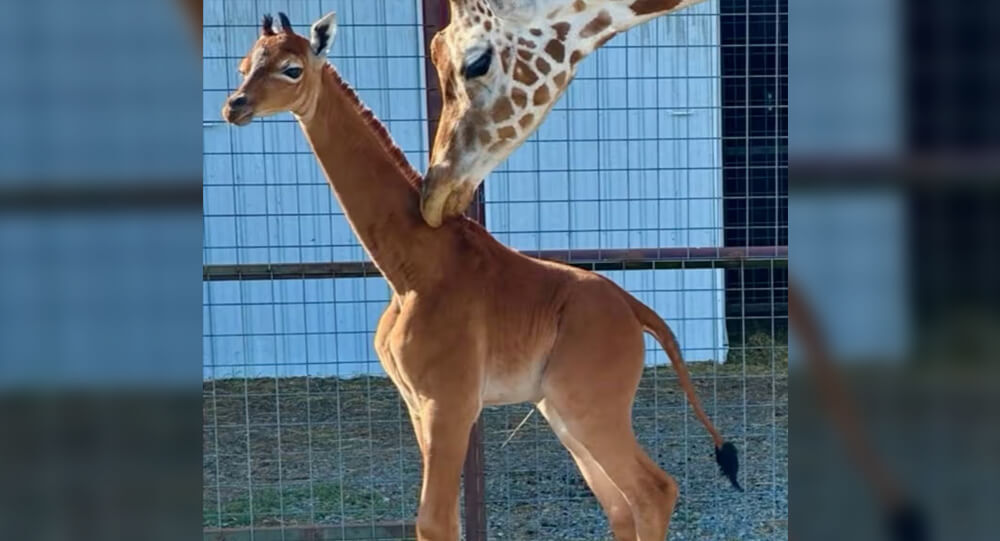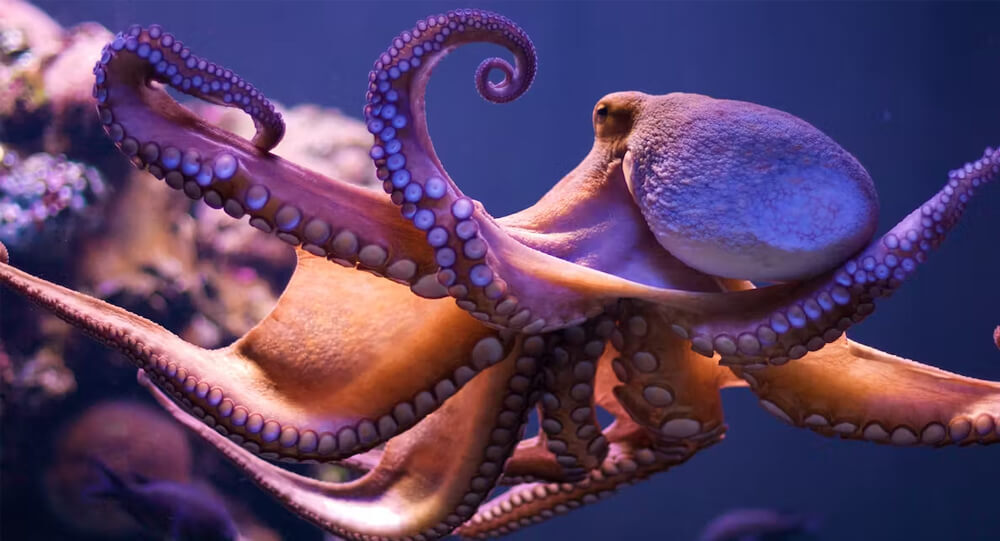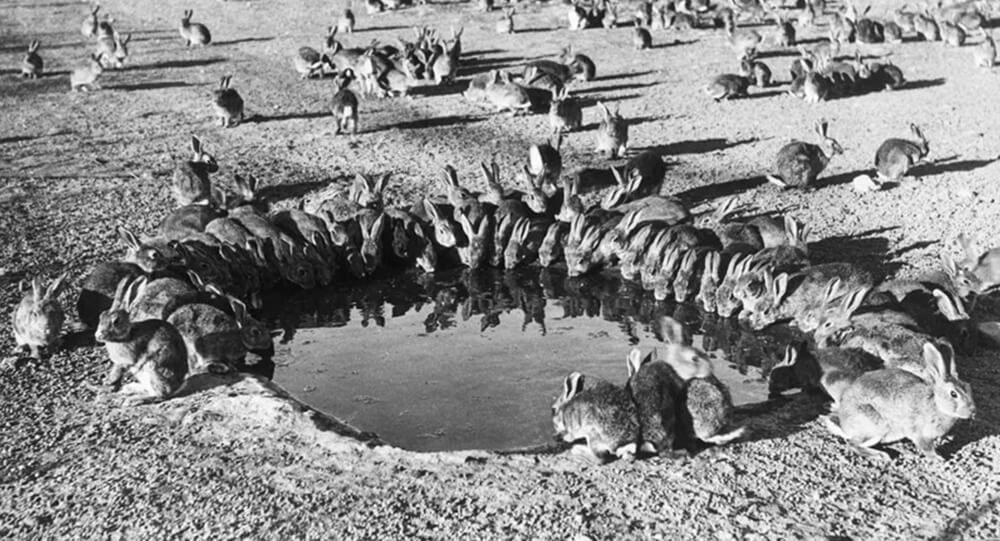
When Wojtek informed a Polish army unit in 1942 that there was a spy in their camp, he won the respect of the soldiers.
The Polish soldiers were traveling through the Middle East on their way back to Europe after being liberated by Russia following the German invasion in 1941. It wouldn’t be unusual to add additional members during such a journey, but Wojtek’s situation was unique because he was a bear.
Wojtek, whose mother is said to have been killed by hunters, was purchased by Polish forces while they were in Iran and finally enlisted in the 22nd artillery supply unit of the Polish II Corps in 1942.
He stayed with them as they crossed into Egypt from Iraq.

In order for Wojtek to board a ship bound for Europe in 1943, the Poles formally recruited him as a private, complete with a pay book and serial number.
Wojtek received double rations and finally weighed well over 400 pounds.
Wojciech Narebski, a Polish soldier who served with Wojtek for three years during the war, told the BBC in 2011: “He was like a child, like a small dog. He was given milk from a bottle, like a baby. So, therefore, he felt that these soldiers are nearly his parents and therefore he trusted in us and was very friendly.”
They both had the same name, Wojtek, which is a short form of Wojciech and meaning “happy warrior.”
Iain Harvey, an animator and the executive producer of the 1982 television adaptation of Raymond Brigg’s children’s story “The Snowman,” which received an Oscar nomination and is still broadcast on British television each Christmas, is now telling Wojtek’s story in an animated film.
The bear smoked, drank, and wrestled with soldiers

Harvey told the Times of London this week that when he first learned about Wojtek, he believed the tale to be “pure imagination.” “Having a genuine piece of magic is wonderful.”
Wojtek eventually achieved the rank of corporal and took on the role of the unit’s mascot.
The bear, who also enjoyed smoking and drinking, would engage in boxing and wrestling matches with soldiers. One bottle was little to him, Narebski told the BBC. He wasn’t intoxicated and weighed [440 pounds].
He was “extremely quiet, quite peaceful,” according to Narebski, and had been trained not to pose a threat to anyone. However, he didn’t get along with a second bear or a monkey that the soldiers had also adopted.

Narebski told the BBC that Wojtek was a source of encouragement for the group. “From a psychological standpoint, it was crucial for people who are far from their family and their nation of origin.”
But throughout the battle in Italy, he was more than just pleasant company.
At the Battle of Monte Cassino, a British soldier remarked that he was shocked to witness the six-foot bear transporting artillery shells to replenish the Allied forces. Wojtek was depicted with a shell on the company’s patch as well.
Before the Italian Battle of Bologna, in April 1945, Narebski last saw Wojtek.
The bear was relocated to the Edinburgh Zoo when his regiment was demobilized there in Scotland.
He lived at the zoo until his death in 1963 at the age of 21. There, he was frequently visited by former members of his unit.
When Narebski returned to Poland, the Polish government had imposed limitations that made it difficult for him to communicate with his former allies, both human and bear.
However, he never forgot about Wojtek.
Narebski told the BBC, “It was quite pleasant for me to think of him. I thought of him as my older brother.

How Switzerland ended rabies epidemic by air-dropped vaccinated chicken heads
A rabies epidemic struck foxes in Switzerland in the 1960s. The government wanted to vaccinate foxes against rabies, but manual vaccination was difficult and expensive. Instead, they began dropping vaccinated chicken heads across the countryside for the foxes to consume, and the rabies vanished.

Kipekee, the world's only spotless giraffe, was born at Brights Zoo
The world's only spotless giraffe was born at a zoo in the United States. The giraffe born without spots on July 31 is the only one of her kind on Earth.

Blind dog guides by goose, Story of Boxer and Buttons’ friendship
When Baks the blind dog was left blinded after an accident, his friend Buttons became his seeing-eye-goose by hanging on to him with her neck and honking to direct him.

Why Crows Hold Funerals for Their Dead
Crows are far more than noisy backyard birds; they engage in peculiar, ritualistic behaviors when one of their own dies. Known as “crow funerals,” these gatherings involve groups of crows circling, calling, and sometimes even interacting physically with the deceased in ways that stump scientists and captivate bird watchers. What drives this strange behavior? New research reveals it’s a complex mix of learning, social bonding, and survival instinct wrapped in an enigmatic ritual.

Are Octopus Intelligent? A Look Inside an Octopus's Brain
Octopuses are extremely intelligent. It is the only invertebrate capable of emotion, empathy, cognitive function, self-awareness, personality, and even interpersonal relationships. Some believe that if humans did not exist, octopi would eventually take our place as the dominant life form on Earth.

9 Reasons Crows Are Smarter Than You Think
Crows have the intelligence of a 7-year-old human, making them one of the smartest non-primate animals on the planet. They use tools, have a long-term memory that includes facial recognition, and comprehend analogy.

Megamouth Shark And Her Babies Found Dead In The Philippines
Filipino zoologists have recorded a pregnant megamouth shark for the first time ever since the rare aquatic specie was discovered in 1974.

The Evolution of Flight: From Dinosaurs to Birds – A Journey Through Time and Science
Flight is one of nature’s most remarkable adaptations, but its origins trace back millions of years before modern birds took to the skies. Emerging from theropod dinosaurs during the Jurassic period, birds evolved feathers, wings, and lightweight bodies that enabled powered flight. This detailed narrative explores the fascinating evolutionary path from ground-dwelling dinosaurs to the aerial masters of today, blending science, intriguing fossil finds, and surprising trivia about our feathered ancestors.

9-Year-Old Hero from Yemen Rescues Fox from a 3-4 Floor Deep Well—No Ropes, Just Bravery
In an inspiring act of courage, a 9-year-old boy from Yemen rescued a trapped fox from a deep well—three to four floors underground—without any climbing equipment. Discover the full story of how quick thinking, determination, and sheer bravery saved an innocent life against all odds.

How European Rabbits Took over Australia
In 1859, wealthy settler Thomas Austin released 13 wild rabbits on his Australian estate. By 1920, their population grew to 10 billion.

Titanoboa cerrejonensis, fossils of the world’s largest species of snake
In 2009 in a coal mine of Columbia, scientists discovered fossils of the world’s largest species of snake. The species is called “Titanoboa cerrejonensis,“and it is from around 60 million years ago. It would have had measured about 48 feet long and weighed about 2,500 pounds

Andy Goose - The Goose With No Feet but wears Nike shoes
Andy was a goose who was born without feet. However, his owner came up with a solution to help him stand and move around by outfitting him with Nike sneakers. This gave Andy the ability to move around like any other goose, but it also made him a source of inspiration for disabled children. Sadly, he was mysteriously murdered in 1991.

A man travels for hours daily through a drought to provide water for wild animals.
This man travels throughout Kenya bringing thirsty animals thousands of litres of water. Patrick Kilonzo Mwalua regularly travels to the Tsavo, where extreme drought is endangering the lives of elephants, buffalo, zebras, and antelope. He promises to keep giving out water every week until it starts to rain in the hopes that getting the word out will lead to a long-term fix.

Remembering Alex: The African Grey Parrots Final Message
"You be good, I love you. See you tomorrow" Parrot's last words to her caretaker. Alex (1976 – September 6, 2007) was an African Grey Parrot and the subject of a thirty-year (1977–2007) experiment by animal psychologist Irene Pepperberg, initially at the University of Arizona and later at Harvard University and Brandeis University. Pepperberg bought Alex in a regular pet shop when he was about one year old.

How Migratory Birds Navigate Thousands of Miles Without Getting Lost
Migratory birds undertake epic journeys spanning thousands of miles with astonishing precision, never losing their way. Their secret lies in a remarkable blend of innate senses, learned experience, and sophisticated navigation tools—ranging from the Earth's magnetic field to celestial clues and mental maps. Explore how these feathered travelers accomplish one of nature's most astounding feats through science, intuition, and adaptation.

The unique friendship of a bear and a dog
A female grey wolf and a male brown bear's remarkable "friendship" was captured by Finnish photographer Lassi Rautiainen over the course of ten days in 2013. Together, they traveled everywhere while hunting and splitting their catch.

10 Rarest and Albino animals you haven’t seen
For centuries, people have been fascinated and enchanted by the ghostly appearances of abnormally white animals. People have loved albinos and other unusually white animals so much that they may be helping to increase their numbers, despite the difficulties these animals face in the wild. While these unusual animals did not win the genetic lottery, they have persevered in the face of adversity.

The Incredible Story of Sergeant Stubby, the Dog Who Became a War Hero
Sergeant Stubby was not just an ordinary dog—he was an extraordinary war hero who served alongside American troops during World War I. From catching a German soldier by his pants to alerting soldiers of mustard gas attacks and locating wounded comrades, Stubby’s bravery saved countless lives in the trenches. This article chronicles the inspiring journey of the stray dog who became the most decorated animal of the Great War and remains a beloved symbol of courage and loyalty.

A one-eyed Vancouver fish receives a fake eye so that other fish will not bully him
A fish whose eye was removed due to cataract was bullied by other fish at the Vancouver Aquarium. So the vets fitted the fish with a prosthetic eye to fool the other fishes.

Jack the Baboon operated a railroad, earned a living, and never made a mistake
A baboon worked as a signalman for the railroad in the late 1800s. He never made a mistake and worked for the railroad until the day he died.

Pierre Brassau: The chimpanzee painter who deceived the avant-garde world
Abstract paintings by a previously unknown artist “Pierre Brassau” were exhibited at a gallery in Sweden, earning praise for his “powerful brushstrokes” and the “delicacy of a ballet dancer”. None knew that Pierre Brassau was actually a 4 year old chimp from the local zoo.

The viral stray dog walked up to a pharmacy in Istanbul and showed an injured paw
Back in 2019, a stray dog walked up to a pharmacy in Istanbul and showed an injured paw to the pharmacist who then treated the wound and gave the dog food and water. The incident was caught on video, which went viral instantly.

The story of Bill Haast, who lived to be 100 despite his extensive snake venom injections
Bill Haast immunized himself by injecting snake venom into his blood for several years. He holds the Guinness World Record for surviving the most lethal snake bites, having been bitten over 172 times. Bill became known as "Snake Man" around the world and lived for over 100 years.

Earthquakes: Can Animals Really Predict Them?
In 1975, when officials in the Chinese city of Haicheng were alarmed by odd and anxious behaviors of dogs and other animals. These observations led them to order 90,000 residents to evacuate the city. Only a few hours later a 7.3 magnitude earthquake destroyed nearly 90% of the city’s buildings.

Deer Walks Into Store To Check Their Goods, Comes Back Later With Her Kids
In 2017, a deer entered a Colorado store. An employee fed the deer a peanut bar in an attempt to get it to leave. The deer did leave, but later that day it returned with its entire family.


























